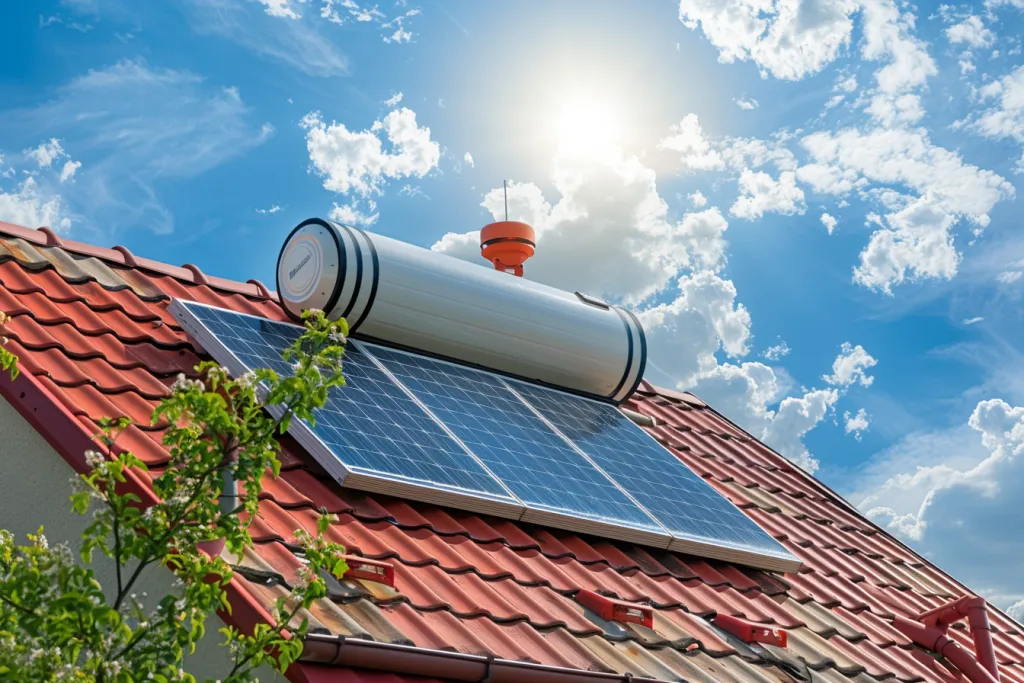Installing a solar water heater is a significant investment that can lead to long-term energy savings and environmental benefits. If you’re considering a solar water heater in Dubai, there are several key considerations and tips you should be aware of to ensure a smooth installation process and optimal performance. This guide will walk you through the essential aspects of installing a solar water heater, from choosing the right system to proper maintenance after installation.
1. Assess Your Home’s Energy Needs
Before deciding on the type of solar water heater to install, it’s crucial to assess your home’s water usage. This involves understanding how much hot water you need daily, whether you have a large family or run a commercial establishment, and your energy consumption patterns. Accurately estimating your needs will help you select the appropriate solar system that can meet your demands without wasting energy.
A professional installer can assist with evaluating your water usage and recommend a system size based on your needs. In regions like Dubai, where the sun shines abundantly, it’s important to consider a system that can harness solar energy efficiently throughout the year.
2. Selecting the Right System
There are several types of solar water heaters, and choosing the right one is vital for ensuring high efficiency and durability. In Dubai, where the climate is hot and sunny, a solar water heater in Dubai should be capable of withstanding intense heat while providing consistent water temperature. Here are the two main types to consider:
- Active Solar Water Heaters: These systems use pumps and controllers to circulate water or a heat-transfer fluid through the solar collectors. They are ideal for homes with higher hot water demands or where water needs to be moved over long distances.
- Passive Solar Water Heaters: These systems rely on natural convection to circulate water, making them simpler and more affordable. Passive systems are often recommended for smaller homes or situations where the water heater doesn’t need to be positioned far from the water supply.
Choosing between these two types depends on factors like your water usage, the space available for installation, and your budget.
3. Consider the Roof and Installation Site
The location of your solar water heater is critical for its performance. The solar collectors must be installed in a place where they can receive maximum sunlight exposure. Typically, this is on a rooftop that faces south (in the Northern Hemisphere) or north (in the Southern Hemisphere). The angle and orientation of the panels should also be optimized to capture the most sunlight throughout the year.
In Dubai’s sunny climate, placing your collectors on the roof allows them to collect solar energy throughout the day. Ensure there is enough space and that the roof can bear the weight of the solar panels and water tank. You should also ensure the installation site is free of obstructions like trees, chimneys, or other structures that could cast shadows on the panels.
4. Understand the Installation Costs and Incentives
Installing a solar water heater involves both the initial setup cost and the ongoing operational expenses. It’s essential to factor in the cost of purchasing the system, installation fees, and any additional work needed to connect it to your plumbing and electrical systems. In Dubai, you may also want to check if there are government incentives or subsidies available for installing solar energy systems.
While the upfront investment can be higher than conventional water heating systems, the long-term savings on energy bills and potential tax incentives make solar water heaters an attractive option.
5. Hire a Professional Installer
Installing a solar water heater is a technical task that requires specialized knowledge. It’s highly recommended to hire a professional solar installer who has experience with the system you’re purchasing. A qualified installer will ensure the proper sizing, placement, and connections to guarantee optimal performance and compliance with local building codes.
In Dubai, where solar technology is becoming more common, finding a reputable installer is relatively easy. Ensure that the installer offers warranty services and proper post-installation support in case any issues arise after the system is up and running.
6. Maintenance and Longevity
Once your solar water heater is installed, regular maintenance is key to keeping the system running smoothly. In Dubai, where high temperatures can put stress on the system, it’s essential to check the collector panels for dirt, dust, and debris, which can reduce their efficiency. Periodically clean the panels and inspect the system for leaks or wear and tear.
It’s also important to check the water tank for any signs of corrosion or sediment build-up, which can affect the water quality and the efficiency of the system. Having a professional service technician inspect your system at least once a year can help prevent costly repairs and ensure longevity.
Conclusion
Installing a solar water heater is an excellent way to reduce your energy bills and minimize your carbon footprint. By carefully considering factors such as your water needs, the type of system, installation site, and hiring a professional installer, you can ensure that your solar water heater provides reliable and efficient service for years to come. With the right system and proper maintenance, you can enjoy the numerous benefits that solar energy has to offer, all while contributing to a greener, more sustainable future.

